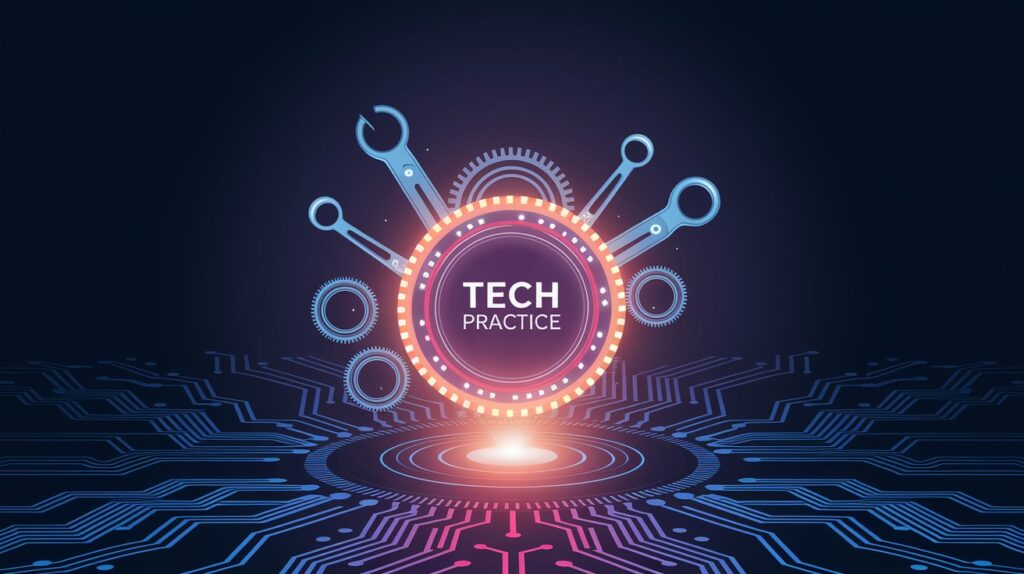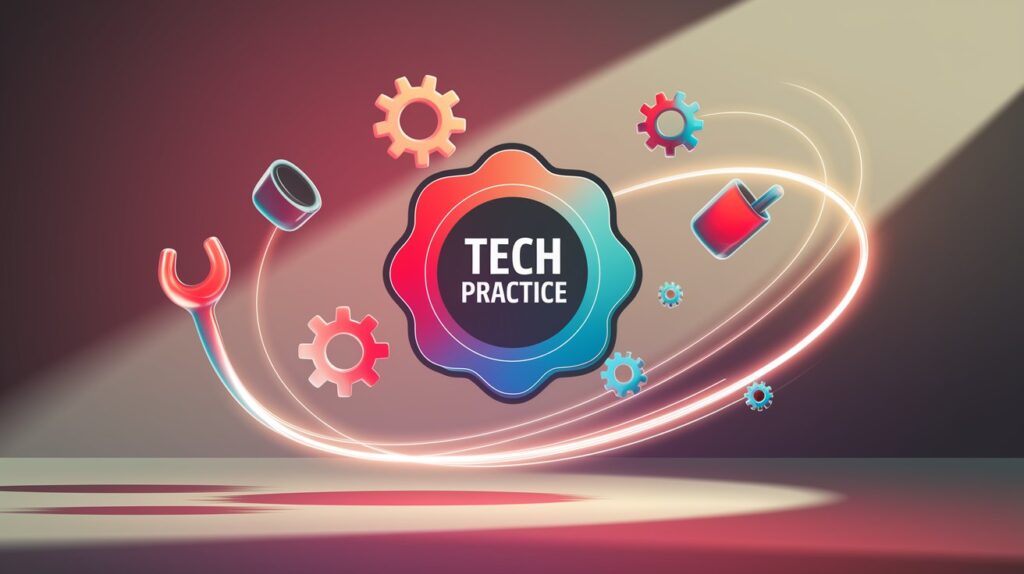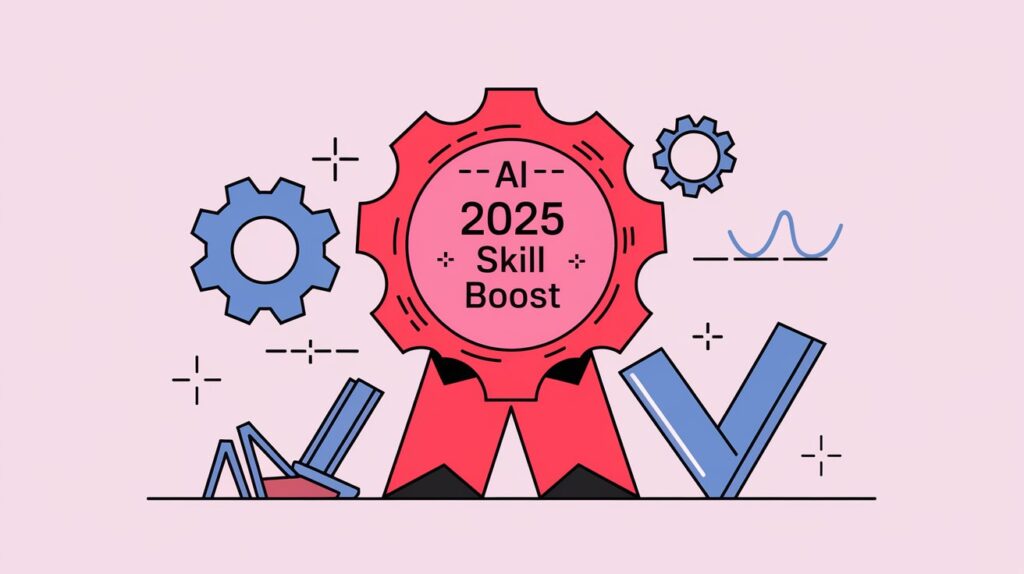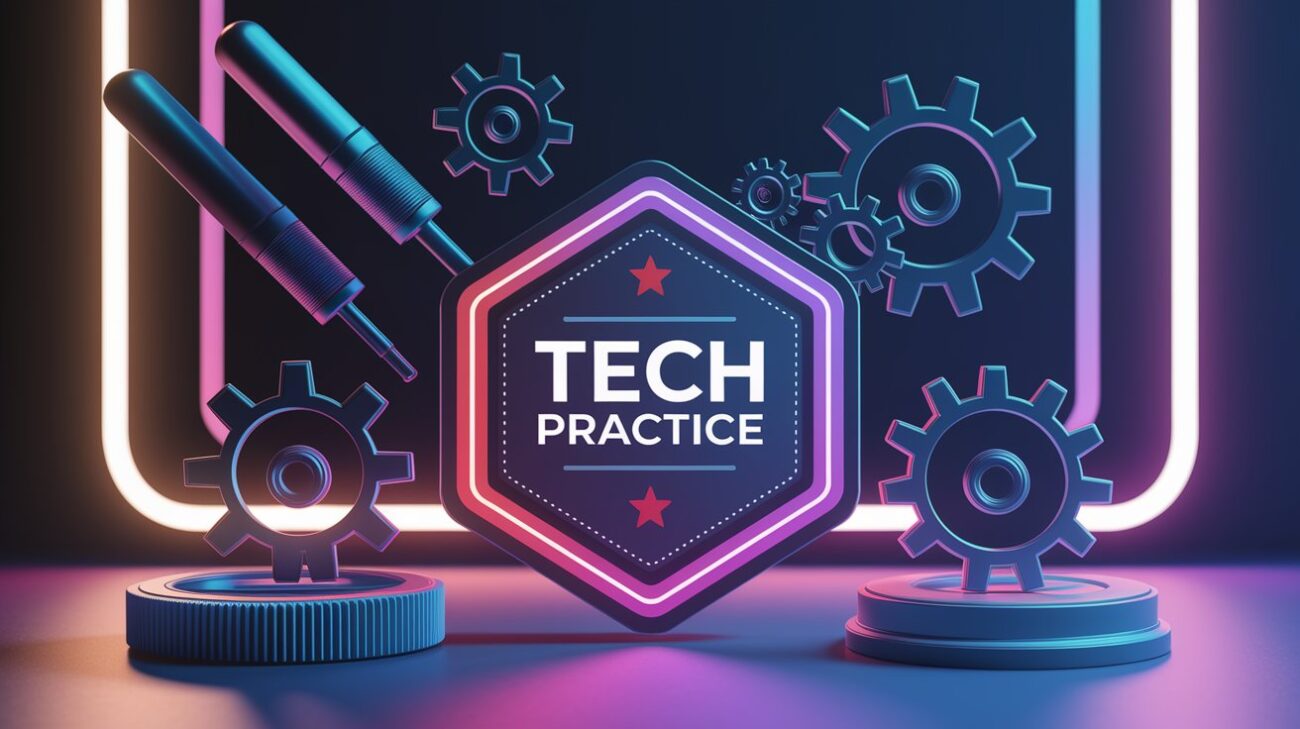1. Introduction to AI Practice
Artificial Intelligence (AI) involves the creation of systems that emulate human functions, such as analyzing data, recognizing patterns, and making decisions. AI practice refers to the hands-on application of AI concepts through exercises, projects, and experiments, allowing learners to translate theoretical knowledge into practical skills. For tech learners, AI practice is a critical step in developing competence with AI technologies.
This article outlines essential tips for boosting AI practice, designed specifically for individuals new to the field. It provides a structured, beginner-friendly approach to enhance skills, preparing learners for the technological landscape of 2025. The focus remains on clarity and accessibility, avoiding advanced technical requirements.
2. Value of AI Practice in 2025
By 2025, AI is projected to be a driving force in multiple industries, including healthcare, logistics, and education, fueled by advancements in computational capabilities and data resources (Precedence Research). This expansion is expected to generate numerous opportunities for individuals with practical AI skills (World Economic Forum).
For tech learners, AI practice offers a means to bridge the gap between understanding concepts and applying them effectively. It enables the development of abilities such as model training, data handling, and problem-solving with AI tools. Engaging in AI practice ensures preparedness for a future where AI applications are increasingly prevalent, making it an invaluable pursuit for beginners.

3. Essential Tips for Effective AI Practice
The following tips provide a clear framework for tech learners to improve their AI practice, emphasizing practical methods that build skills incrementally.
- Start with Simple Model Training
Begin AI practice by training basic models using accessible tools. Platforms like Google’s Teachable Machine allow users to input data—such as images or sounds—and observe how AI learns to classify it. This introduces core concepts like data processing and prediction. Learners should dedicate 30 minutes daily to experiment with small datasets, adjusting inputs to understand their impact on results. - Focus on Core Coding Exercises
Coding is a fundamental aspect of AI practice, and Python offers an approachable entry point. Using a free platform like Replit, learners can follow beginner guides to write scripts that perform tasks like sorting data or generating predictions. A suggested commitment is 5-10 hours over two weeks to complete a simple project, reinforcing principles such as algorithmic logic and output analysis. - Incorporate Visual Learning Tools
Visual aids enhance AI practice by clarifying abstract concepts. Video tutorials from resources like Khan Academy explain topics such as machine learning workflows in an accessible format. Learners should spend 1-2 hours weekly reviewing these lessons, taking notes on processes like “training iterations” to support hands-on efforts with a solid foundation. - Test and Refine Small Projects
Effective AI practice involves iterative testing. After building a basic model or script—such as a text classifier—learners should test it with different data inputs and refine it based on outcomes. This process, requiring 2-3 hours weekly, strengthens understanding of concepts like accuracy and error correction, making AI practice more robust. - Collaborate with Learning Peers
Collaboration amplifies AI practice by exposing learners to diverse approaches. Joining online communities, such as Reddit’s r/LearnAI, allows for sharing projects and receiving feedback. A monthly investment of 2-3 hours in discussions or group exercises enhances skills like data preparation and model optimization through collective insight.

4. Common Obstacles in AI Practice
Tech learners may encounter difficulties during AI practice, which can impede skill development if not addressed. The following identifies these challenges and offers solutions.
- Difficulty with Initial Setup: Setting up tools or environments can be daunting for beginners. To simplify AI practice, learners should opt for no-installation platforms like Teachable Machine or Replit, focusing on immediate engagement rather than technical configuration.
- Lack of Clear Goals: Without defined objectives, AI practice may feel aimless. Learners should set small, achievable targets—such as training a model to recognize five items—spending 1-2 hours per task to maintain direction and motivation.
- Overreliance on Complex Resources: Using advanced tools prematurely can overwhelm learners. Sticking to beginner-oriented resources, such as Khan Academy videos, ensures AI practice remains manageable and aligned with current abilities.
5. Resources to Support AI Practice
The following resources are curated to facilitate AI practice, offering accessible, practical options for tech learners.
- Teachable Machine: A free, browser-based tool by Google for training simple AI models. Learners can use it to practice AI practice by uploading data and analyzing outputs, with a recommended 30-minute daily session for one week.
- Replit: A no-cost online platform for coding Python-based AI exercises (Replit). Following a beginner tutorial, learners can spend 5-10 hours building a basic project, applying AI practice concepts like data handling.
- Khan Academy: A resource offering free video lessons on AI fundamentals. Weekly sessions of 1-2 hours help learners understand AI practice elements, such as “model training,” enhancing practical efforts.
- Supplementary Community: Platforms like r/LearnAI provide a space for collaborative AI practice, suitable for 2-3 hours monthly to refine skills through peer interaction.
6. Conclusion
AI practice equips tech learners with the practical skills needed to engage with artificial intelligence, preparing them for the technological advancements of 2025. Through model training, coding exercises, visual learning, project refinement, and peer collaboration, learners can systematically enhance their abilities. By addressing common obstacles with appropriate resources and clear strategies, individuals can boost their AI practice effectively, establishing a strong foundation for future technological pursuits.

7. Frequently Asked Questions
What is meant by AI practice?
AI practice refers to the application of AI concepts through hands-on activities, such as training models, coding scripts, or testing systems, to develop practical skills in artificial intelligence.
Why is AI practice important for tech learners in 2025?
In 2025, AI’s widespread integration into technology underscores the need for practical skills. AI practice enables learners to apply knowledge, preparing them for opportunities in an AI-driven landscape.
How can beginners improve their AI practice?
Beginners can enhance AI practice by starting with tools like Teachable Machine, coding on Replit, and using Khan Academy lessons, following a structured approach to build skills gradually.
What obstacles might affect AI practice?
Obstacles include setup difficulties, unclear goals, and complex resources. These can be overcome by using simple tools, setting small targets, and maintaining a steady pace in AI practice.
Which resources are best for AI practice?
Teachable Machine, Replit, and Khan Academy are ideal for AI practice, offering interactive, coding, and visual learning options tailored to tech learners’ needs.
